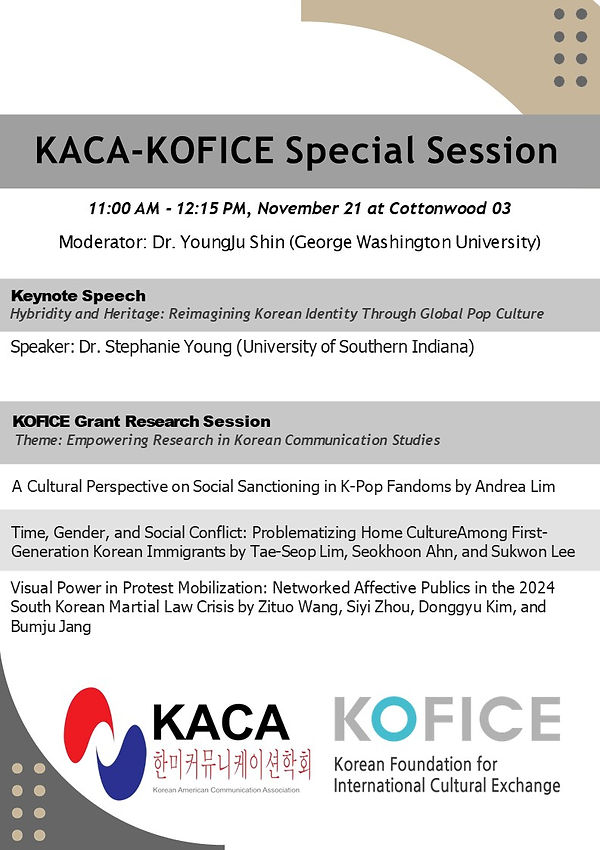2025 KACA-NCA
Please scroll down for more details about the following:
-
Call for Papers (2025, KACA-NCA)
-
Sponsors
-
Program Report & Pictures

2025 KACA-NCA program
We’re looking forward to connecting with colleagues at this year’s KACA–NCA program on Friday, November 21, in Cottonwood 03.
Our morning sessions begin with the KACA–NCA Research Session (9:30–10:45 AM), featuring papers under the theme “Elevating Korean Communication: People, Platforms, and Pilgrimages.” This will be followed by the Business Meeting/KACA-KOFICE session (11:00 AM–12:15 PM), including a keynote speech by Dr. Stephanie Young and presentations from KOFICE Grant recipients.
In the evening, we invite you to join us for the KACA–NCA Networking Dinner at Yong Gung. Seating is limited to 32 guests, so please RSVP by Thursday, November 20. See the message below.
RSVP: https://cwu.co1.qualtrics.com/jfe/form/SV_6J7P18dQyvcjr5s
If you have any questions, please contact Seokhoon Ahn at ahns@cwu.edu.
RSVP for the KACA–NCA Networking Dinner!
Date & Time: Friday, November 21 | Depart the Hotel at 6:00 PM
Restaurant: Yong Gung, 2040 S Havana St, Aurora, CO 80014
Cost: Complimentary for faculty members and graduate students (faculty non-members’ dinners are not covered).
Dinner Highlights:
-
Engaging discussions with KACA members and guests
-
A hands-on networking with the KOFICE keynote speaker and KOFICE grant recipients



2025 NCA-KACA Convention Pictures

![[2022] KACA Logo Landscape - White.png](https://static.wixstatic.com/media/858563_695fd41a289f44efb4d11b9ff3ba9b7c~mv2.png/v1/fill/w_389,h_156,al_c,q_85,usm_0.66_1.00_0.01,enc_avif,quality_auto/%5B2022%5D%20KACA%20Logo%20Landscape%20-%20White.png)






